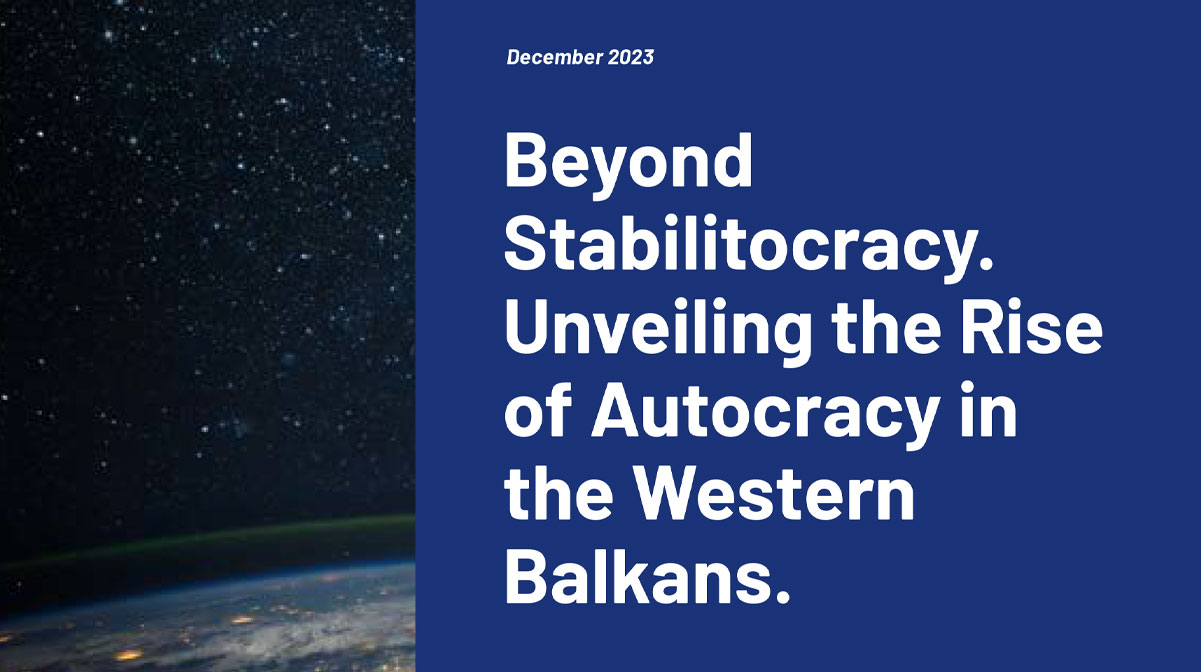

Democracy is challenged throughout the world, including the Western Balkan countries (Albania, Bosnia and Herzegovina, Kosovo, Montenegro, North Macedonia, Serbia) with current violent conflicts reshaping the global political order. Many nondemocratic or authoritarian governments, including those in the Western Balkans,1 have used the Covid-19 pandemic as a catalyst or an opportunity to enact additional limitations on civil freedoms, and to securitise citizens and civic engagement, delegitimise election processes, and implement novel mass surveillance methods. Russia’s invasion of Ukraine has furthermore increased the security stakes of the region vis-à-vis its closest neighbours and helped strengthen the authoritarian tendencies of some of its political leaders.
Today, we argue, the WB6 is no longer in an in-between zone, and we seek to explore how the stabilitocracy conundrum has evolved in recent years, to assess the shift towards full autocracy in the WB6. At the same time, we assert that the democracy/autocracy dichotomy is too simplistic,5 recognising the democratic bias that has gained prominence in this discussion. Empirically, we aim to highlight a more complex picture of countries that exist on a wide a spectrum between these two categories, and the ongoing autocratisation away from stabilitocracy.